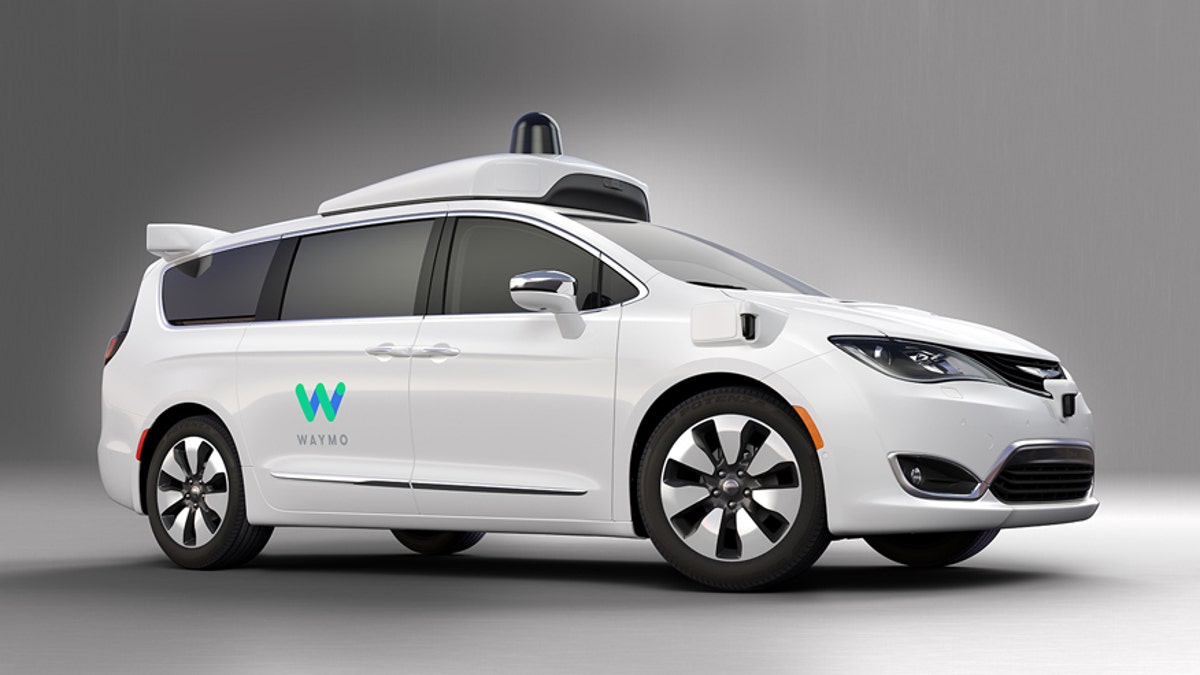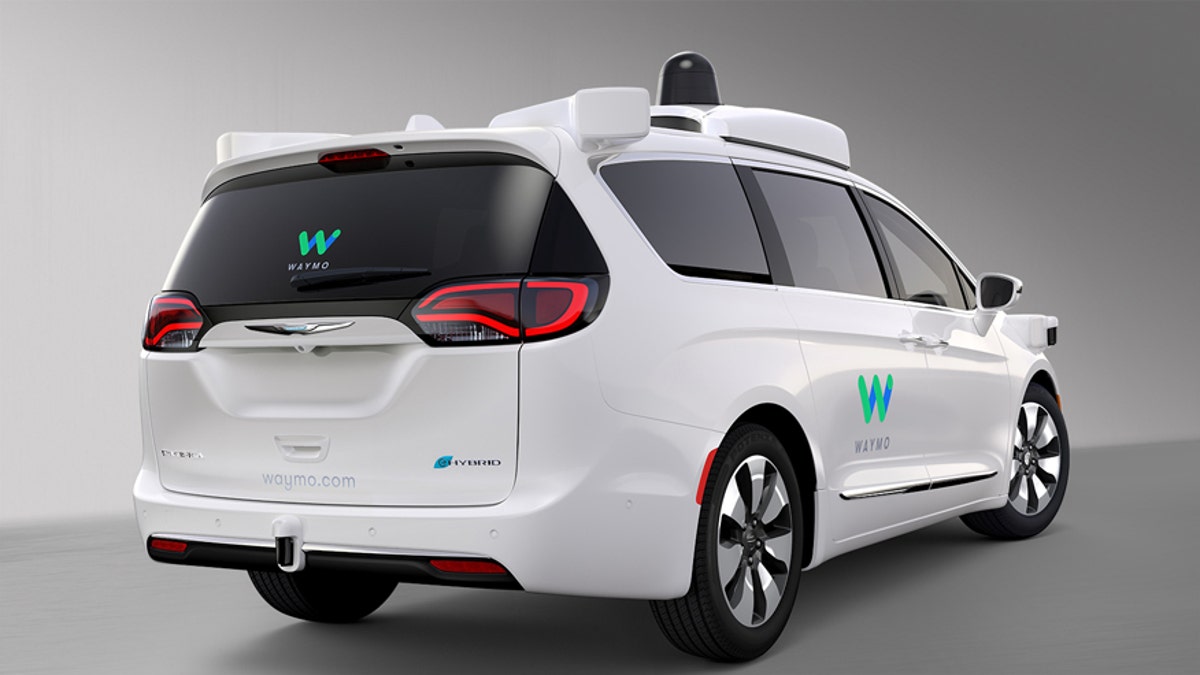
A Chrysler Pacifica equipped with Waymo autonomous driving technology (Waymo/Crhysler)
The most futuristic car you’ll see this week is a minivan.
Waymo, Google parent Alphabet’s recently announced self-driving automobile technology company, has unveiled its new autonomous Chrysler Pacifica.

Fiat-Chrysler worked with Waymo to integrate its bulky suite of Radar, Lidar and camera equipment into the Pacifica Hybrid, along with all of the gear needed for it to drive itself. One hundred of the augmented people carriers have been built and will be hitting the road next year. Waymo says that it has already put prototypes of the vehicles through their paces on closed test tracks and exposed them to over 200 hours of extreme weather conditions.
Google began its work on self-driving cars in 2009, and since then has completed 2 million miles of real world testing in a variety of vehicles in California, Arizona, Washington and Texas. When it announced Waymo, it made clear that it will be focused on developing autonomous technology from here on out, rather than making and selling autonomous cars, like Tesla plans to do.
Bloomberg reports that Waymo and Fiat Chrysler will soon deploy additional vans in a ride hailing service, similar to Lyft or Uber. Waymo hasn't confirmed its intention to do so, but its CEO, John Krafcik, recently revealed that "our next step as Waymo will be to let people use our vehicles to do everyday things like run errands, commute to work, or get safely home after a night on the town."
A recently-passed law in Michigan allows for such services to operate within the state. Uber is currently testing its own fleet of self-driving cars in Pittsburgh and San Francisco, but with human drivers closely monitoring their operation and ready to take control when issues arise.